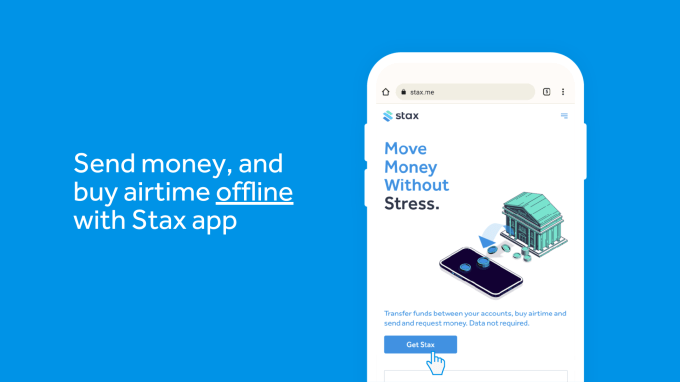Stax, a startup that allows Africans to buy airtime, send and request money, and transfer funds between accounts via automated USSD codes, has raised a $2.2 million seed extension round.
The round was co-led by U.S.-based firms World Within and Noemis.
In a market where internet-enabled app-based banking can reach 300 million subscribers on the continent, USSD technology, mostly offline and used by feature phones, beats it with 850 million connections. This technology allows people to send and receive money, pay for bills and buy data offline, and reports say more than 90 percent of digital transactions in Africa are done on its rails.
The tech infrastructure that facilitates these code-based transactions is provided by the banks. When users dial a code for a service, they are asked if they want to send or receive money, pay bills, or check their account balance, among other things.
USSD has its own unique challenges. In Nigeria, where the average banked customer has three to five bank accounts and some people use bank applications or fintech platforms to make online transactions, others rely on USSD codes. One or two codes is one thing, but about five is different.
Enter Stax. The company was founded by Ben Lyon, Jess Shorland and David Kutalek, and it allows users to perform transactions without using a USSD code. The play for Stax is to improve the user experience.
Stax is all of your bank accounts, mobile wallet, and rypto in a single app that works without mobile data. About 300 million people in Africa have a strong preference to transact via USSD instead of apps because they keep their mobile data turned off, according to CEO Lyon.
Despite having a phone, they want to be offline. That's the spot where Stax comes out.
Stax has employees from the U.S., the U.K., Nigeria and Africa. More than 100 banks and mobile money accounts are available for customers to use in six countries, where the platform is fully supported.
The platform came out of the test phase. It had less than 3000 monthly active users in its first month, but has since grown to acquire more than 170,000 customers, of which only 40,000 are active monthly users.
Over the years, experts have pointed out that improper validation of the technology can lead to attacks from hackers with a propensity to leak sensitive information.
Lyon acknowledges that there is a lack of a unified data regulation, which he feels is responsible for these issues. He said that the only way to win that game is to play a different game.

Permission to send and view messages, access contacts, and make and manage phone calls are only required for users to download Stax. According to Lyon, these permission don't reveal customers' personal information. In the event of a hack, hackers can harm users, steal data, and move money.
We don't want to know their personal and identifiable details. The CEO explained that this is a utility app for your money and that they are never going to sell your data or narrow ads to you.
Stax had an opportunity to get ad dollars if cross-selling users with data-backed insights were used. The company plans to charge commission from partner brands who provide additional services to its users down the line because it has designed its app for a different purpose.
Lyon, head of product Shorland and CTO Kutalek, met in Africa while running different businesses. Mobile money is used more in Africa than anywhere else. When it came to starting a new project, it was necessary to find a way to maximize the use of the technology.
Most digital financial services in the continent use USSD as their primary channel. Lyon said that they set out with the question of how can we make USSD reprogrammable and how can we open it up to build new experiences on them.
Faster deals, less diligence: The African startup market mirrors its larger rivals
The first iteration of the company was called Hover. The platform allowed developers to build apps on USSD rails. After the platform did not make enough revenue from developers, the team decided to go vertical and make Stax, a universal money app for African users. The company is still called Hover.
Stax plans to include several features in the course of its journey, including a self custody crypto wallet that will allow users to buy airtime when they dial nonfinancial codes. Stax will be able to expand its services from 10 African countries to 50 when it closes its Series A round.
Stax is looking at an emerging market play where it will expand beyond Africa into other markets where USSD is common, like South and Southeast Asia, according to Lyon. It will come later.